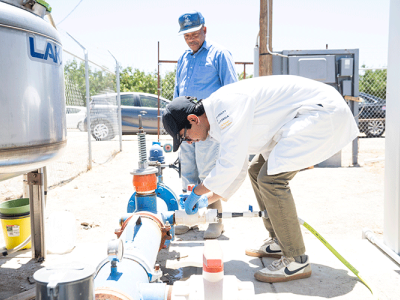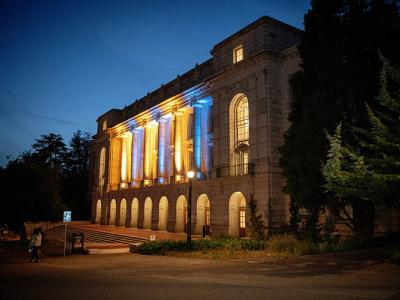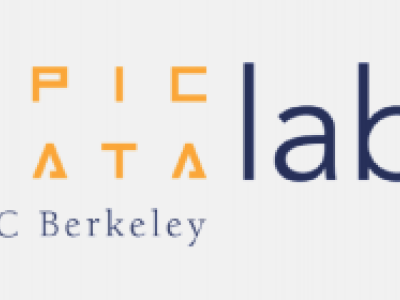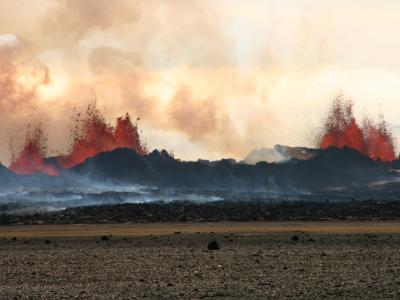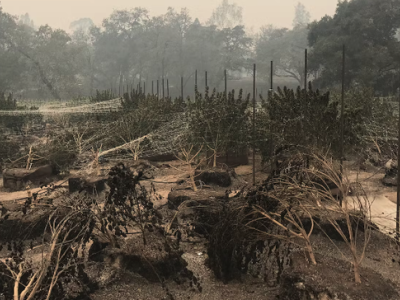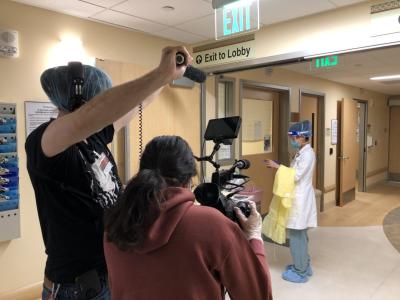A new study led by researchers at the University of California, Berkeley, and Virginia Tech is one of the first to analyze how incarcerated individuals in California may be impacted by arsenic-contaminated water. The study analyzed 20 years of water quality data from prisons where arsenic levels in the water supply exceeded regulatory limits for months or even years at a time.
Research News
Learn more about UC Berkeley's researchers and innovators.
Showing 641 - 656 of 3454 Results
In collaboration with Hutson and other Allensworth community leaders, engineers at the University of California, Berkeley, are currently field testing a simple and low-cost new arsenic treatment system that is designed to help small, rural communities like Allensworth access arsenic-safe drinking water.
When the Conservative Political Action Conference convened in Texas last month, state Lt. Gov. Dan Patrick took the stage and surveyed the culture war issues that define today’s Republican agenda: hostility to immigration and transgender rights, and deep commitment to gun rights as a defense against government tyranny.
For UC Berkeley Law Dean Erwin Chemerinsky, the ability for the U.S. Supreme Court to overturn abortion rights, expand gun rights and limit the power of the Environmental Protection Agency to regulate greenhouse emissions, all within the span of a week, is proof that conservative justices’ originalist view of the Constitution has politicized the court for decades to come.
With the U.S. midterm elections approaching and political disinformation posing a continued threat to democracy, UC Berkeley’s ambitious new Our Better Web initiative, launched on a small scale in April, is advancing efforts to study and combat online harms including deception, discrimination and child exploitation.
This Halloween season, vampires might want to pause their never-ending search for the blood of youth. A new study from UC Berkeley researchers disputes the idea that, for humans, young blood can rejuvenate the old — and suggests there is likely a better way to ward off the ravages of time.
The new proposal for how Saturn became “Lord of the Rings” in our solar system and how Saturn got its axial tilt will be published this week in the journal Science. The lead author is Jack Wisdom, a professor of planetary science at the Massachusetts Institute of Technology (MIT), with key contributions from Burkhard Militzer at the University of California, Berkeley.
UC Berkeley is the No. 1 public school in the country — tied with UCLA, according to the newest American college rankings by U.S. News and World Report. The celebratory news comes after a remarkable few years at Berkeley, including two Nobel Prize wins for sitting faculty and a record-breaking fundraising campaign that is well on the way to raising $6 billion for the public campus.
Building data tools that allow people without programming backgrounds to benefit from the latest computer science advances, the EPIC Data Lab – short for Effective Programming, Interaction, and Computation with Data, a new UC Berkeley Lab, is collaborating with end-users like public defenders to understand what important messy data challenges exist in their fields.
Mass extinctions litter the history of life on Earth, with about a dozen known in addition to the five largest ones — the last of which, at the end of the Cretaceous Period 66 million years ago, killed off the dinosaurs and 70% of all life on Earth. A new study, led by scientists at Dartmouth College in New Hampshire, concludes that most of these mass extinctions had one thing in common: They occurred after mega-eruptions that spewed volcanic lava and toxic gases for hundreds of thousands of years, and some for as long as a million years.
New analysis led by researchers from Rausser College of Natural Resources and the University of Cambridge offers insight into the trajectory of energy research, development, and demonstration (RD&D) that may help policymakers recalibrate their strategy to drive innovation. Published September 12 in the journal Nature Energy, the findings show that participating in Mission Innovation, a new form of international cooperation, and intensifying technology competition from China are the strongest drivers of funding for new clean energy RD&D.
While food insecurity is a problem for a growing segment of the U.S. population — made even worse by the coronavirus pandemic — few studies have looked at the effect that feast or famine has on the developing brain in isolation from other factors that contribute to adversity. A new study by neuroscientists at the University of California, Berkeley, simulated the effects of food insecurity in juvenile mice and found lasting changes later in life.
The stereotype of the female secretary who hikes up her skirt to get a promotion is as pervasive as the powerful male boss who makes passes at his underlings. But a new study upends both tropes with evidence that it’s actually men in subordinate positions who are most likely to flirt, use sexual innuendo, and even harass female bosses as a way to demonstrate their masculinity and power for personal gain at work.
A new study led and co-authored by professor Amanda Brewster found that hospitalizations declined when patients were part of a social needs case management program.
Wildfires are an increasing threat to people's lives, property and livelihoods, especially in rural California communities. Cannabis, one of California's newer and more lucrative commercial crops, may be at a higher risk of loss from wildfire because it is mostly confined to being grown in rural areas, according to new research by scientists in the Department of Environmental Science Policy and Management at UC Berkeley.
The UC Berkeley Graduate School of Journalism will launch a $25 million, state-funded fellowship program this spring that aims to support and strengthen local reporting in underserved and historically underrepresented areas across the state.


